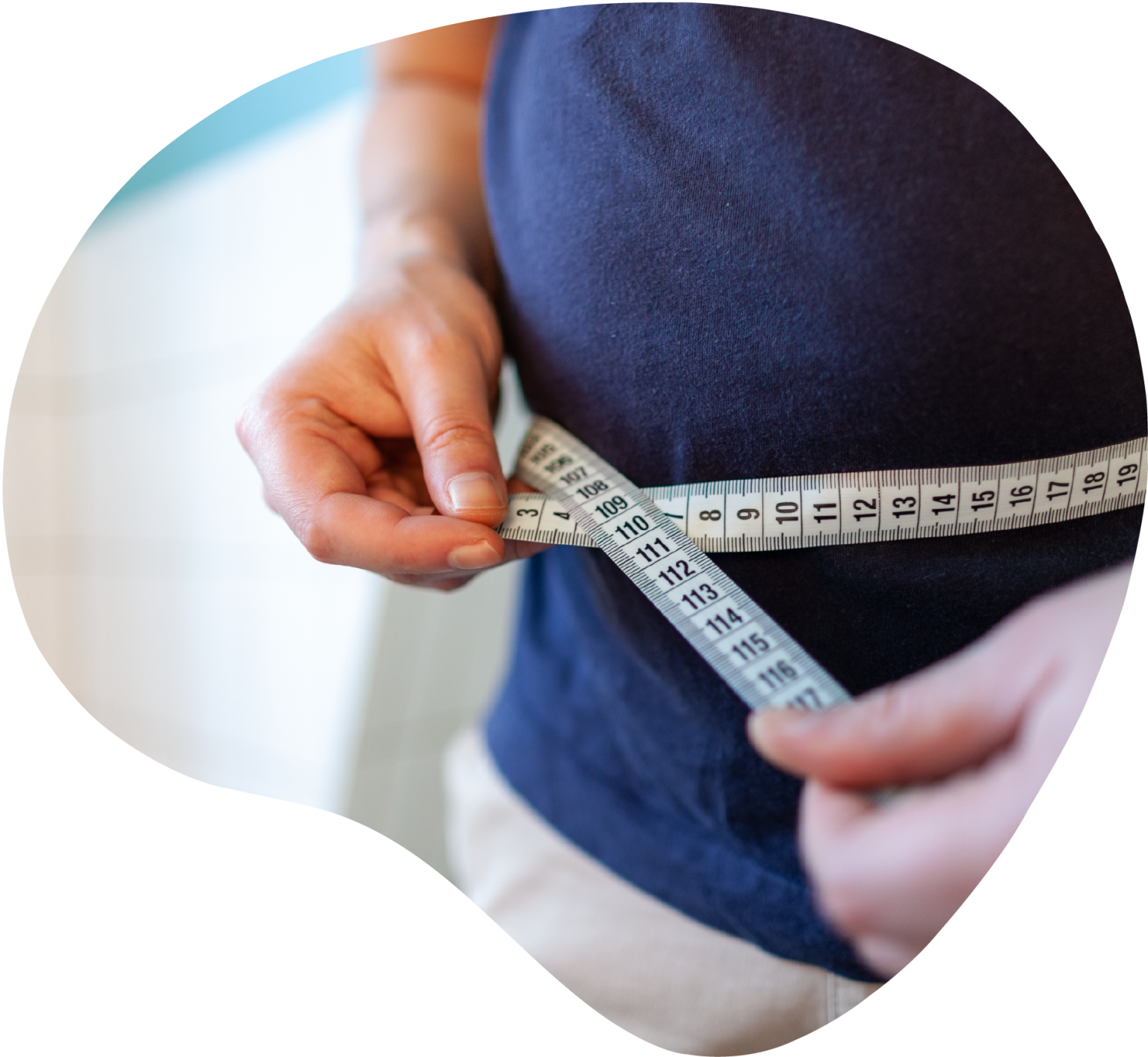Symptoms of Midlife & Menopause
Belly Fat & Chin Hair
The number one reason women call or visit a menopause specialist is, “I don’t feel like myself.” And the number two reason is, “I am gaining weight, and I haven’t changed anything—and it’s all in my belly!”
Weight gain during midlife can start for a variety of reasons. Maybe you recently went on a vacation and weren’t as concerned about what you were eating. Perhaps you were helping a sick relative, or you experienced an illness yourself, and you couldn’t exercise as frequently. Weight fluctuations are common and typically, becoming active again and cutting 200-300 calories per day helps that extra weight to come back off.
For some women, however, the weight does not come off and instead starts to increase rapidly. This usually happens due to a combination of genetics and insulin resistance. In addition to weight, increased insulin resistance can lead to a variety of other issues within the body including dreaded chin hair.
Together Women’s Health can help answer all of your questions about belly fat and chin hair.
Why Do Women Gain Belly Fat?
Women who start experiencing significant weight gain are typically insulin resistant, meaning their cells are resistant to insulin.
In our bodies, insulin “opens doors” into our cells, allowing sugar to enter. If cells are insulin resistant, the body is then triggered to produce more insulin to push sugar into cells. The increased insulin inhibits the breakdown of fat cells and encourages the body to store all incoming sugar as fat, especially in the belly area. Increased insulin levels also cause the body to crave sugar – starting the cycle all over again.
Why is Belly Fat Different Than Other Types of Fats?
Belly fat is metabolically different, and it is very hard to get the weight back off when we gain fat in this area. Belly fat also increases your risk for cardiovascular disease, heart attacks, stroke, and dementia because belly fat can store extra hormones (we will circle back to this with chin hair) and can trigger inflammatory factors. As belly fat increases, symptoms of menopause can be exacerbated, including hot flashes and mood disorders.
Why are Belly Fat and Chin Hair Connected?
Belly fat is unique from other types of fats on the body in that belly fat has the ability to store prohormones. Prohormones are then converted into hormones that look like testosterone. Extra testosterone stimulates increased hair growth in areas like your chin, lip, face, belly, and even chest. The tricky part about chin hair is that once this process starts, it can be hard to stop (hair cells cannot be “turned off”).
What Can Trigger Your Body to Increase Insulin Production?
Stress. Insulin levels can increase in response to both situational and chronic stress.
Sleep deprivation. Lack of sleep can increase both your insulin level and sugar cravings, spiking your insulin again.
Estrogen Levels. As estrogen levels decrease during menopause and aging, insulin resistance increases.
Increased Body Fat. As belly fat increases, the body's insulin resistance also increases. A vicious cycle!
Genetic Predisposition
Who is More at Risk for Insulin Resistance?
Women in menopause
Women with diabetes
Women who are genetically predisposed to insulin resistance – including those of Indian descent, Mexican descent, and Asian descent. African American women also have a higher risk of diabetes.
5 Tips To Help You on Your Weight-Loss Journey
The good news is that you can take steps to stop new hair cells from being activated and combat increasing body fat.
Become familiar with the glycemic index and where foods fall along the glycemic scale. The higher the number on the scale, the more likely your body will turn that particular food into belly fat.
Take small servings of complex (low glycemic) carbs throughout the day to stabilize your blood sugar.
Limit simple (high glycemic) carbs toward the end of the day. Dinner should be a protein and vegetable combination.
Incorporate low glycemic recipes into your diet.
Maintain muscle mass or lean body weight through strength training and exercise.
Our Certified Menopause Practitioners have extra training in how hormones affect your health, and we can help you with all your questions about belly fat, chin hair, and more!
Learn more about belly fat and chin hair
From true.’s founder & Chief Medical Officer, Dr. Diana Bitner
Make an Appointment
© Copyright

